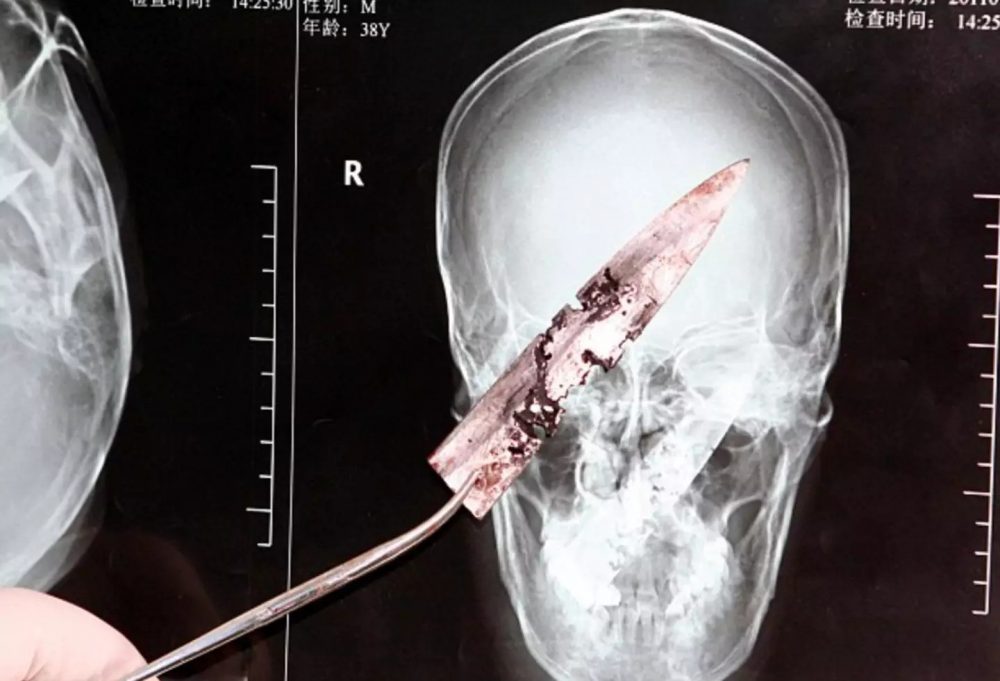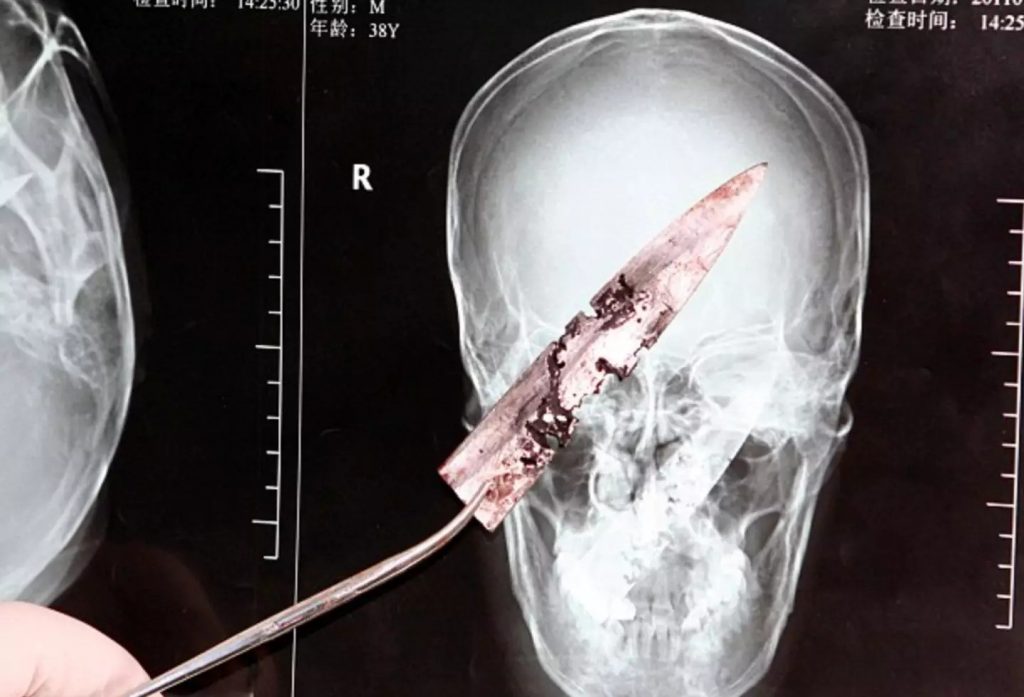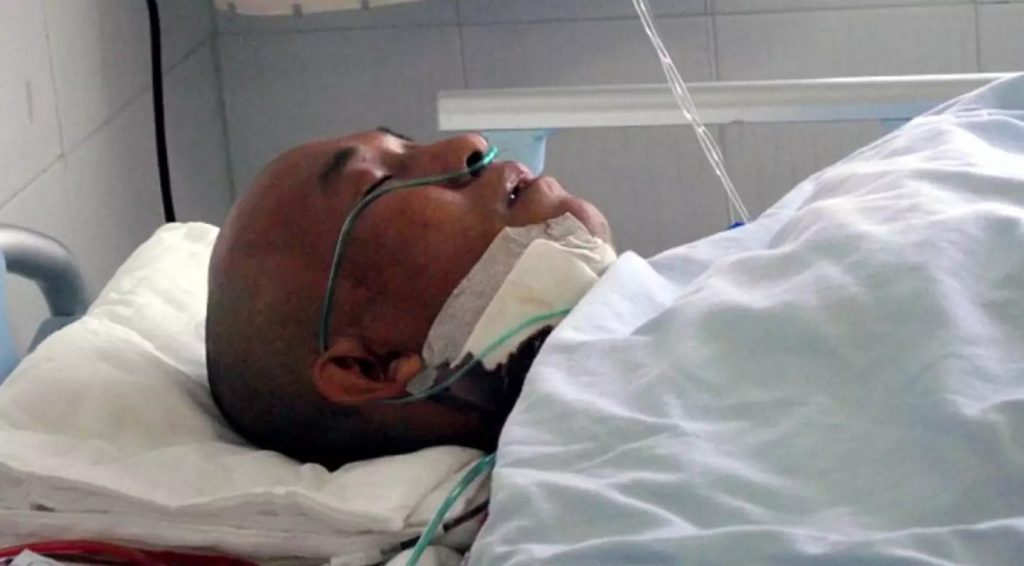Man Removes Knife in Head After Surgery 4 Years Later

©️ Caters News Agency
In an incredible case of medical mystery, a man in China discovered the cause of his headaches after four years: a rusty knife lodged in his skull.
A 4-Year Mystery Solved With Surgery
Imagine suffering from persistent headaches, bad breath, and breathing difficulties for four years. You visit countless doctors, seeking a diagnosis and relief, but the cause remains elusive.
This was the reality for Li Fuyan, a 30-year-old man from China until a shocking discovery during surgery revealed the source of his ailments: a rusty, four-inch knife lodged in his skull.

The story, which recently gained traction online, defies medical logic and raises questions about human resilience. Li reported experiencing headaches for years, but the severity of his symptoms never truly connected the dots to a potential head injury.
It wasn’t until he sought medical attention for additional problems like bad breath and breathing difficulties that doctors stumbled upon the unthinkable.
During surgery, the medical team at Yuxi City People’s Hospital in Yunnan Province made a discovery that left them speechless. Embedded in Li’s skull was a corroded knife blade. The revelation not only explained Li’s chronic headaches but also brought back a long-forgotten memory.

Li recalled a robbery four years prior where he was stabbed in the lower jaw. He had assumed the wound healed completely, unaware that the blade had broken off and migrated into his skull.
How Could He Not Notice a Knife in His Head Until Surgery 4 Years Later?
The case has sparked debate and disbelief online. Some grapple with the notion of how Li could have overlooked a stabbing to the head, let alone endured the pain for so long. However, medical professionals offer a plausible explanation.
X-ray images, shared by the hospital, show the knife positioned behind Li’s throat, miraculously missing the carotid artery and other vital structures.

Dr. Eugene Flamm, a neurosurgeon at New York’s Montefiore Medical Center, explains that the human body has spaces between organs, which surgeons utilize during procedures. He theorizes that the knife, by sheer luck, navigated one such space, avoiding major damage and allowing Li to survive for an extended period.
Adapting to a Knife in the Skull
The successful removal of the blade, despite its advanced state of corrosion, is a testament to the surgeon’s skill. Li’s case, where a knife in his head for 4 years only came after surgery, serves as a reminder of the body’s remarkable ability to adapt and heal, even in the face of seemingly impossible circumstances. The story also highlights the occasional puzzling case encountered in medicine, leaving doctors both baffled and amazed.
While the details surrounding Li’s initial stabbing and subsequent lack of immediate symptoms remain somewhat unclear, the medical evidence and Li’s recovered memory paint a picture of an extraordinary medical anomaly. This incident serves as a fascinating conversation starter, prompting discussions about human resilience, the complexities of the human body, and the occasional mystery that unfolds within the realm of medicine.
You might also like to read: Why Do We Get Those Random Stabbing Body Pains?


